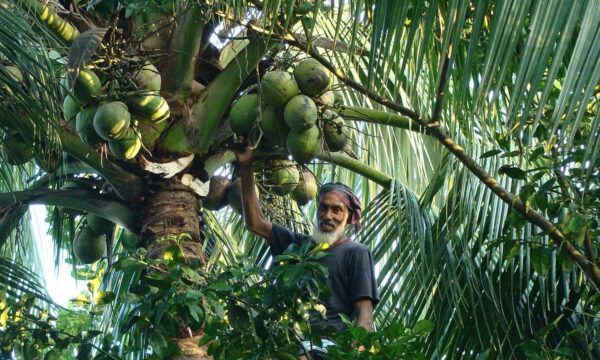Last week, Nature published an article on the story of rice, from a wild grass to the stable crop we know today. Rice is one of the most important crops in the world as it forms the basis of the diet of a large portion of the human population. Due to the high importance of this crop, there is a vast amount of research that goes into ensuring the world’s rice production is as efficient and sustainable as possible.
Like all crops, rice is affected by a range of pests including insects, pathogens, weeds, nematodes and birds. One of the most damaging pests for rice in Asia is the Brown Planthopper (BPH). This pest not only feeds on rice plants, but also transmits grassy stunt virus and ragged stunt virus which cause stunting and reduce productivity. There are chemicals that will control this insect pest but it is important to note that this isn’t always the best method of control, due to the effect on natural enemies that feed on BPH. There are a range of non-chemical options that are effective at preventing and controlling BPH including the use of resistant varieties and avoiding excessive urea application to the field.
To find out more about BPH and its management, read this month’s Plantwise Factsheet for Farmers which was written by staff from Shushilan, an agroecology and rights-based NGO situated in South West Bangladesh. Please note this factsheet is also available in Bengali.
Plantwise Factsheets for Farmers are produced by partners in Plantwise countries for use by plant doctors and extension workers who provide advice to farmers. To see more about the content held on the Plantwise knowledge bank, please click here.
Related News & Blogs
How plant clinics are strengthening crop health services in Bangladesh
When the first-ever plant clinic in Bangladesh opened in Dhaka in 2013, it initially faced a lack of interest due to its novelty and limited awareness among farmers. However, it went on to expand, providing advice to over 17,000 farmers and led to the…
2 July 2025





